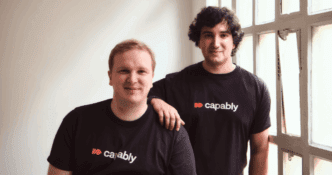Behind every powerful AI system lies an even more powerful engine: data. But it’s not just about having data—it’s about having the right infrastructure to access and use it efficiently. That’s where Hammerspace comes in. The company has quietly become a go-to partner for tech giants like Nvidia, Meta, Tesla, Palantir, and the U.S. Department of Defense, helping them tap into their unstructured data stores with ease.
Now, Hammerspace is making headlines with a fresh $100 million strategic venture round, bringing its total valuation to more than $500 million. The round includes big-name investors like Altimeter Capital and ARK Invest, alongside undisclosed strategic backers described as “highly participatory.” For a company that’s largely grown by word of mouth, this marks a major step toward more aggressive expansion.
Solving AI’s Biggest Bottleneck: Unstructured Data
AI development has entered a high-stakes sprint, but many companies still struggle with a foundational problem—how to handle the enormous, messy piles of unstructured data spread across their systems. These data troves are scattered across competing cloud platforms, on-prem environments, and legacy tools. Moving them around to power modern AI models is not only slow—it’s inefficient.
Hammerspace offers a different approach. Rather than forcing companies to shift data from one location to another, it makes all of it instantly accessible, no matter where it lives. Think of it like a digital pocket dimension—data appears exactly when it’s needed and disappears when it’s not, much like the cartoon concept the company is named after.
This flexibility is exactly what high-demand companies need. According to CEO and co-founder David Flynn, idle compute time is one of the biggest threats in today’s AI race. The company’s file system, built on a Linux architecture and the kernel NFS client—maintained by co-founder and CTO Trond Myklebust—is designed to orchestrate data across any environment. And that’s what sets it apart.
From Bootstrapped Roots to IPO Ambitions
Flynn originally self-funded Hammerspace before raising $56 million from Prosperity7 Ventures (Saudi Aramco’s venture arm), ARK Invest, and Pier 88 Hedge Fund. With this new $100 million round, the company plans to grow its sales and marketing teams and expand enterprise adoption even further.
While an IPO was once considered for this year, Hammerspace is now looking two years ahead, citing market conditions. Still, the direction is clear. The company aims to go public and position itself as a core player in the rapidly expanding AI infrastructure market.
With data at the heart of every AI strategy, Hammerspace isn’t just solving a technical issue—it’s helping to redefine the way next-gen enterprises think about speed, scale, and value.













